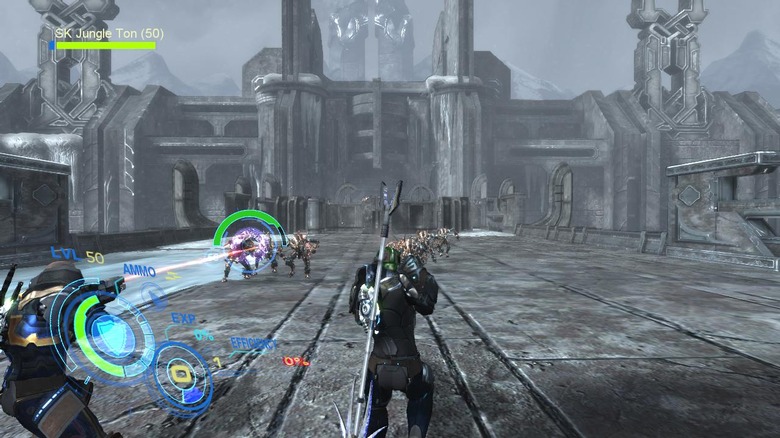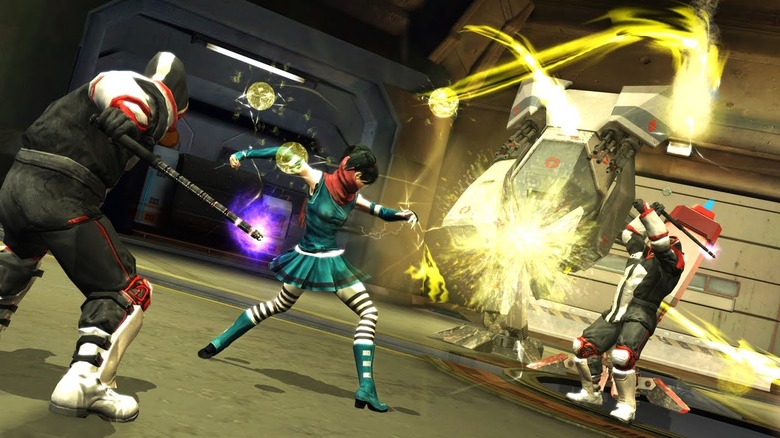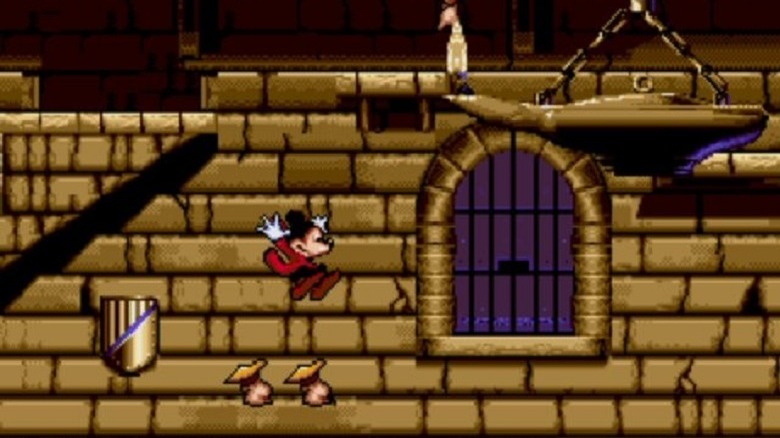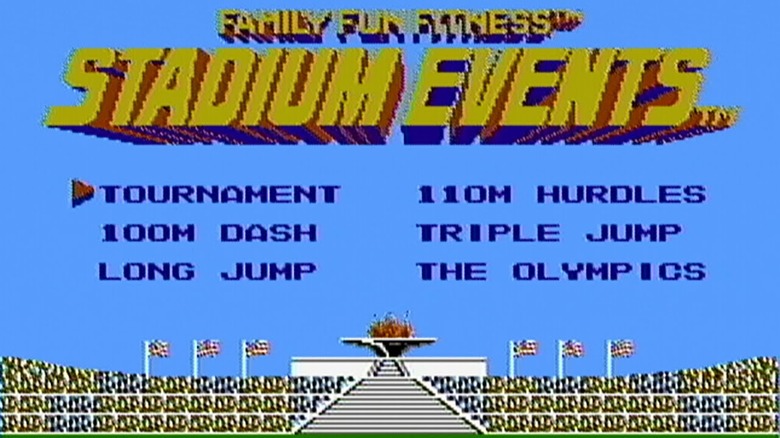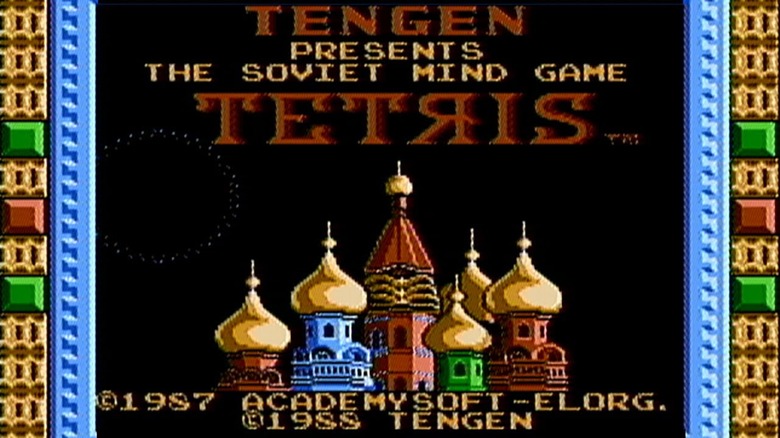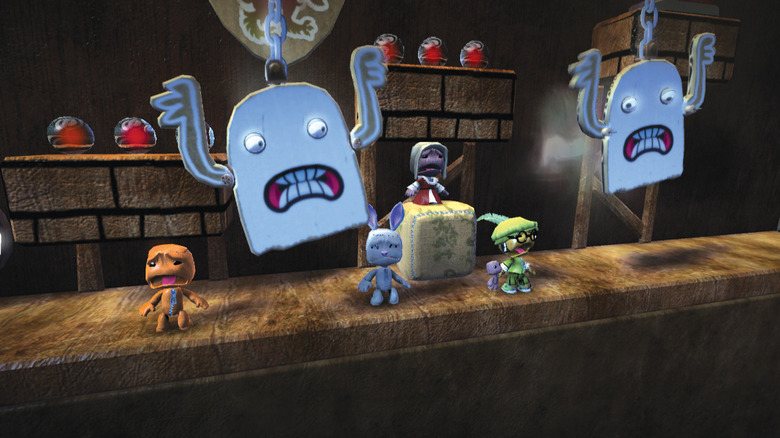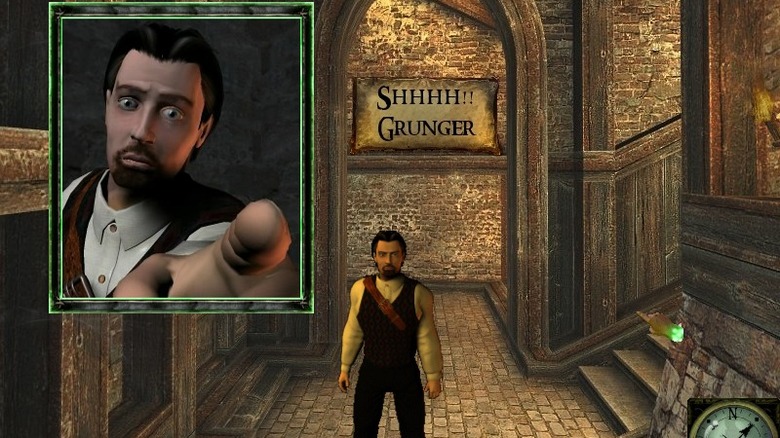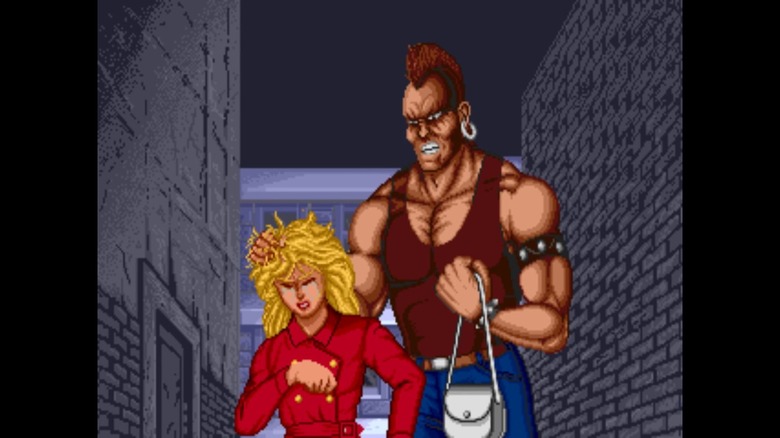Games That Were Recalled And Destroyed
When a company puts a video game into the world, the hope is always that it will be a smashing success. You want demand to so surpass supply that you have to make more copies to keep your fervent fan base satisfied. However, not all of our dreams come true, and that goes for video game developers as well. Sometimes, things take such a bad turn that games that have already been made have to be taken out of this world.
There have been, in the course of video game history, several games that have ended up facing destruction instead of deification. Yes, physical copies of video games have been destroyed in the past, and not by careless gamers. Companies end up having to get rid of their inventory for one reason or another; many times, this is because copies of the game have to be recalled. Even if this isn't the fault of the people behind the game, it is still an ignominious moment when a game ends up with such a fate. Here are nine examples of video games that were recalled and destroyed.
Too Human was hurt by the too human quality of greed
Silicon Knights was an unremarkable independent studio in Canada when they decided to take a big swing at Epic Games in 2007. Epic is the company behind Unreal Tournament and Gears of War, and most importantly here, also the Unreal Engine. Silicon Knights sued Epic over disagreements about the engine, claiming that Epic had sabotaged "efforts by Silicon Knights and others to develop their own video games" using Unreal Engine 3.
As Gamasutra noted, this backfired horribly. Epic countersued Silicon Knights In 2012, and a judge in North Carolina ruled in Epic's favor, saying that Silicon Knights "repeatedly and deliberately copied significant portions of Epic Games's code containing trade secrets... and used it to create a competing product, Silicon Knights's own game engine." This meant that Silicon Knights had to recall and destroy every single unsold copy of Too Human, a game that had a sordid history already. The title had been in development from 1999 until it finally came out in 2008. Then, with this ruling, Too Human was all but wiped off the face of the Earth.
The Silicon Knights hits continue with X-Men: Destiny
As Games Radar reported, Silicon Knights' trouble did not end with Too Human's recall. They also had to recall and destroy copies of X-Men: Destiny. The hook of this game was that you played not as Wolverine or Cyclops or Rogue, but as a new mutant who could join forces with either Professor X or Magneto. However, the game received middling reviews, and Niche Gamer noted that during production the budget was slashed due to Disney acquiring Marvel.
Of course, after the court ruling, the mediocre quality of the game no longer mattered. The damage done to Silicon Knights went beyond losing these two games. In addition to destroying every copy of Too Human and X-Men: Destiny, they had to destroy the code for three announced games. They also had to hand over all their computers and servers to Epic so they could make sure none of their licensed technology still lingered. Silicon Knights also had to pay $9.2 million to Epic. Unsurprisingly, they filed for bankruptcy in 2014.
Fantasia fulfills no fantasies
In 1990, the Disney film Fantasia celebrated its 50th anniversary. To honor that, Sega decided to make a video game version of the classic movie. However, they did not seem to have put much thought into the decision beyond that. The people making the game were rushed and inexperienced. Sega Retro noted that former Head of Product Development for Sega Ken Balthaser said that he regretted the company releasing the game in an "unplayable" state.
The game was poorly received, including by Walt Disney's son Roy. In fact, Roy did not realize that the rights to Fantasia had been granted to Sega. It turns out that this was done in error. Disney tried to do right by Sega, but they also put an end to the Fantasia game. All sales were halted, and every remaining unsold copy, reportedly around 5,000 of them, were recalled and destroyed. No more games will be made out of the film, perhaps for the best.
The recall that made Stadium Events a hot commodity
Here's something that might get you going through your basement looking for your old Nintendo games. As Lifewire notes, if you have a copy of the North American version of Stadium Events, even if it's just the cartridge, you could get get between $500 and $1,200 for it. If it is still in the box with the manual, you could get $13,000 for it. Somebody else already did.
However, don't get too excited. You almost certainly do not have a copy of Stadium Events lying around. It's the rarest licensed NES game ever. Stadium Events was made by Bandai in 1987 to be used with the Family Fun and Fitness Pad. They only made 2,000 copies, and only 200 of them were actually shipped to be sold. Then, Nintendo bought the Family Fun and Fitness Pad and rebranded it as the Nintendo Power Pad, which you are probably familiar with. After that, they recalled every game that had been released for use with the old pad, including those 200 copies of Stadium Events. Only the copies that had already been sold are still out there, and there are only 10 or 11 of those. The remaining copies of Stadium Events were destroyed, and the game was repackaged as World Class Track Meet. You probably remember that one. There are a lot more copies of it.
Atari's Tetris loses out to Nintendo
Tetris is one of the most iconic games of all time, so it's weird to think of it as having ever been recalled and destroyed. However, that was indeed the case, at least for one version of the game. Based on the original Russian game, Atari, under its Tengen brand, made their own version of Tetris in 1988. That went just fine. Then, Atari decided to try and make a version for the NES in 1989. It was unlicensed though, and that led to to legal issues between Nintendo and Atari.
Nintendo won, and, as Gamasutra notes, the court ruled that Atari's console version of Tetris had to be removed from the shelves. After only being available for four weeks, every NES copy of Tetris bearing the Tengen brand was legally required to be recalled and destroyed. That being said, before that happened they were able to sell about 100,000 copies. This decision didn't make a lot of gamers happy, though: many, including IGN, have declared Atari's version of Tetris superior to Nintendo's.
LittleBigPlanet accidentally quotes the Qur'an
The LittleBigPlanet series of games have been fairly successful. The first one came out in 2008, and since then there have been three console sequels and two handheld games. Critics loved LittleBigPlanet as well; 1Up.com gave it an A+! Before all that happened, though, Sony ran into a little problem thanks to something seemingly insignificant: it's background music.
Sony ended up having to delay LittleBigPlanet's release because, as Eurogamer reported, they found "two expressions that can be found in the Qur'an" in one of its background songs." The song in question was recorded by Toumani Diabate, himself a Muslim, but the folks at Sony worried about offending members of the Muslim faith by having words from their holy book in their silly little video game. No actual complaints were filed, but as it was a delicate situation, they didn't want to take any risks. In addition to delaying the game's release, every copy of the game that had been delivered to retailers worldwide was recalled and replaced. Obviously, every version of LittleBigPlanet with the song in question no longer exists. It's not even a collector's item. It's just a piece of video game history.
Limbo of the Lost borrows too many ideas
In school, they try and drill it into your head that plagiarism is wrong. You aren't supposed to steal other people's work, and if you get caught, there will be hell to pay. Apparently the guys behind Limbo of the Lost did not take that lesson to heart, and that's why their game ended up in hot water.
Before it became famous for its plagiarism, Limbo of the Lost was just a small-time point-and-click adventure known for its weird ending, which UGO pointed out, if it was known for anything at all. The game was made by developer Majestic Studios, which was really just three friends from England. Friends who apparently were big fans of The Elder Scrolls IV: Oblivion and Thief: Deadly Shadows. As IGN reported, the game stole not just level design, but background details as well. It's hard to believe Majestic thought they could get away with it. Tri Synergy, who released the game, claimed ignorance of what the developers had done, and called for an end to all sales. It pulled the game from stores and, of course, all the copies left could not be sold. At least Tri Synergy managed to avoid a lawsuit, unlike a lot of publishers on this list.
Sonic Blast Man causes injuries
Video games don't usually cause injuries. Sure, maybe you could end up with a sore wrist or fingers, and virtual reality can make you feel sick, but games tend to be harmless to your health. That wasn't the case with Sonic Blast Man. Well, at least the 1990 arcade version.
At its core, Sonic Blast Man was about punching people. In the arcade version, they let you do the punching. There was five levels, and there was a bag that you would punch. You would hit it as hard as you could, and if you hit it hard enough you could clear the level. It was like one of those "test your strength" games with a mallet, only this time you used your fist.
You can probably see what the problem was. As Retrovania noted, some game players were a little overzealous with their punches. The game was recalled in the United States because people were hurting themselves. With the machines pulled from arcades everywhere, nobody would mess up their hands trying to beat Sonic Blast Man any longer.

